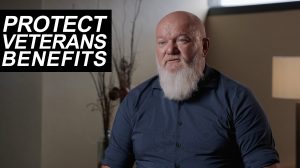A few months ago, on December 3, 2018, the Office of the Inspector General (OIG) within the Department of Veterans Affairs (VA) conducted an audit of State Approving Agencies (SAA), “VA’s Oversight of State Approving Agency Program Monitoring for Post-9/11 GI Bill Students,” to determine whether there was sufficient oversight of GI Bill eligible programs. This audit reported severe amounts of improper payments, but gave minimal details on what made these payments “improper.” Determining exactly how and why the audited institutions and SAAs were failing Student Veterans seemed necessary for us to continue to serve Student Veterans.
It’s important to note that this audit was not aimed strictly at institutions, but included SAAs within its purview. As we shall see, however, we believe this audit still did not have wide-enough scope to ask the truly important question: are these institutions serving Student Veterans well? We wrote the Inspector General’s Office regarding this point, and received this response,
As you correctly noted in your letter and related press release, the OIG did not comment in the report on the number of improper payments attributable to the poor quality of the education programs. The OIG did not discuss the quality of the education programs because that was not the objective of this particular audit, which examined if VA and the State Approving Agencies effectively reviewed and monitored education programs in accordance with Title 38 of the United States Code and ensured only eligible programs enrolled Post-9/11 GI Bill students.
The Office of the Inspector General reiterated this notion at the end of their letter,
None of the improper payments identified by this audit were based on the programs’ poor academic quality. An assessment of academic quality would have exceeded the audit’s objective, which was to evaluate whether VA oversight of the State Approving Agencies was sufficient to ensure compliance with Title 38 requirements.
As Veterans ourselves, let us be the first to affirm the importance of checklists, field prep, and oversight. These habits save lives on the battlefield. Nonetheless, when it comes to the sensational headlines that followed this audit, like VA and SAAs are failing our Student Veterans, or that “bad actors” are defrauding and duping Student Veterans, we recommend a calm, collective pause to look at the facts.
- State Approving Agencies are underfunded and cannot feasibly perform the full extent of their duty – improper payment.
- Veterans Benefits Administration has taken a hands-off approach because of statutory limitations to control SAAs, and cannot provide support – improper payment.
- Programs were not evaluated properly as a result – improper payment.
The compliance reports were incomplete. However, what is currently defined as “sufficient oversight” or “meeting compliance” can change with passing administrations, and new touchstones can become the benchmarks. The important question was never asked, “Are these good programs for Student Veterans?” because this question is hard to answer, and certainly not by checking boxes. We’re thankful that current systems of compliance have been shown to be flawed, and we are actively working to remedy these necessary “checklists.” But we will not mistake the forest for the trees and will continue our mission to seek out programs that are changing the lives of Student Veterans for the better.




